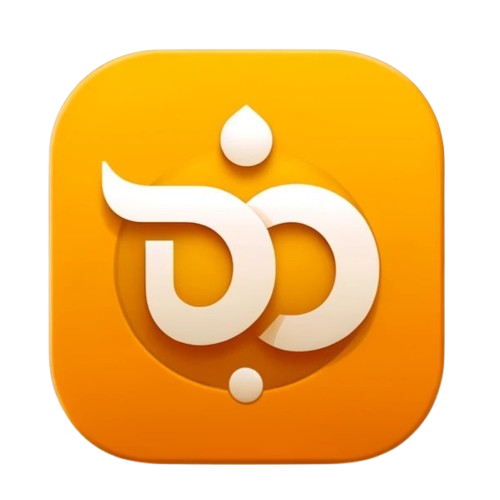Some of the greatest scientist, sages, mathematicians, writers the world tried to ignore:
There have been many great scientists, mathematicians, sages, and writers in ancient India who have made significant contributions to various fields. Here is a list of some of the most notable ones:
Susruta (c. 600 BCE): Physician who wrote the Susruta Samhita, one of the foundational texts of Ayurveda.
Pingala (c. 300-200 BCE): Mathematician who developed the study of combinatorics and binary numbers.
Kanada (c. 6th-2nd century BCE): Philosopher who developed the atomic theory of matter.
Madhava of Sangamagrama (c. 1350-1425 CE): Mathematician who made important contributions to the study of calculus and infinite series.
Jivaka (c. 6th-4th century BCE): Physician who made important contributions to the study of surgery and anesthesiology.
Garga (c. 6th-4th century BCE): Astronomer who made important contributions to the study of astrology and the calendar.
Manava (c. 6th-4th century BCE): Philosopher who developed the Nyaya Sutras, a foundational text of Hindu philosophy.
Kanishka (c. 127-151 CE): King who patronized the development of mathematics, astronomy, and medicine in ancient India.
Nagarjuna (c. 150-250 CE): Philosopher and alchemist who made important contributions to the study of chemistry and metallurgy.
Aryabhata (476-550 CE): Mathematician and astronomer who developed the concept of zero and contributed to the study of trigonometry.
Brahmagupta (598-670 CE): Mathematician and astronomer who developed the formula for the area of a triangle and made important contributions to the study of algebra.
Bhaskara I (600-680 CE): Mathematician and astronomer who made important contributions to the study of trigonometry and developed the concept of the sine function.
Varahamihira (505-587 CE): Mathematician and astronomer who made important contributions to the study of astronomy and astrology.
Charaka (c. 300 BCE): Physician who wrote the Charaka Samhita, one of the foundational texts of Ayurveda.
Susruta (c. 600 BCE): Physician who wrote the Susruta Samhita, one of the foundational texts of Ayurveda.
Panini (c. 520-460 BCE): Linguist who wrote the Ashtadhyayi, one of the foundational texts of Sanskrit grammar.
Patanjali (c. 150 BCE): Philosopher who wrote the Yoga Sutras, one of the foundational texts of yoga.
Chanakya (c. 350-283 BCE): Philosopher and economist who wrote the Arthashastra, a treatise on statecraft and economics.
Kalidasa (c. 4th-5th century CE): Poet and playwright who wrote the epic poems Raghuvamsha and Kumarasambhava and the plays Shakuntala and Malavikagnimitram.
Tulsidas (1532-1623 CE): Poet and saint who wrote the epic poem Ramcharitmanas, a retelling of the Ramayana.
Valmiki (c. 5th-4th century BCE): Poet who wrote the Ramayana, one of the two great epics of Hindu mythology.
Vyasa (c. 4th-3rd century BCE): Poet who wrote the Mahabharata, the other great epic of Hindu mythology.
Jaimini (c. 3rd-1st century BCE): Philosopher who wrote the Mimamsa Sutras, a foundational text of Hindu philosophy.
Gautama Buddha (c. 563-483 BCE): Spiritual leader who founded Buddhism and taught the Four Noble Truths and the Eightfold Path.
Mahavira (c. 599-527 BCE): Spiritual leader who founded Jainism and taught the principles of non-violence and self-control.
Adi Shankara (c. 788-820 CE): Philosopher who founded the Advaita Vedanta school of Hindu philosophy.
Ramanujan (1887-1920 CE): Mathematician who made important contributions to number theory and the theory of functions.
Bhartrihari (c. 7th century CE): Poet and philosopher who wrote the Shringara Shataka, a collection of love poems, and the Vakyapadiya, a treatise on linguistics and philosophy.
Kabir (c. 1398-1518 CE): Poet and saint who wrote devotional poems that blended Hindu and Islamic mysticism.
This list is by no means exhaustive, and there were many other ancient Indian scientists who made significant contributions to various fields of knowledge.
- Political Leaders
- Art & Crafts
- Dance & Music
- Sanatan Dharma
- Education & Training
- Food & Drinks
- Gaming
- Health & Fitness
- Home & Gardening
- Literature & Culture
- Love
- Medicine & Ayurveda
- Motors & Vehicles
- Movies & Cinema
- Parenting
- Politics
- Science & Technology
- Shopping
- Social Media
- Spirituality
- Sports
- War & History
- Yoga & Meditation
- Travel & Tourism
- Natural Disaster
- Business & Startups
- DIY & Home Decor
- Finance
- Personal
- News
- Pet Lovers
- Wild Life & Nature
- Podcast & Audio Books
- Poetry
- Law & Order
- Moral Stories
- Jokes & Humour
- Other

